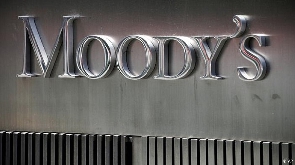*Credit strengths include the favourable growth outlook over the next few years.
*Debt affordability remains the main credit constraint.
Ghana’s credit strengths include the favourable growth outlook for the country’s relatively diversified economy over the next few years, supported by the ramping-up of infrastructure investment and the potential development of a new oil field.
Access to a more reliable power supply will bolster government’s industrialization strategy toward higher value-added products, including in the agro-processing sector – particularly cocoa, in which Ghana and Côte d’Ivoire (Ba3 stable) as the largest producers are boosting their cooperation.
Moreover, institutions are more robust than similarly rated peers, bolstered by the implementation of public financial management reforms and the restructuring of legacy debts from state-owned enterprises (SOEs).
Hydrocarbon exports underpin the shift to a structural trade surplus, although volatile capital flows weigh on the pace of net foreign-exchange reserve accumulation.
The positive outlook reflects Moody’s rising confidence that the country’s institutions and policies will foster improved macroeconomic and fiscal stability over the medium-term – partly as a consequence of the reforms implemented under the recent IMF reform programme.
Pressures and risks remain: as indicated by persistent revenue challenges, a potential repeat of pre-election fiscal cycles, and the emergence of significant arrears and further contingent liabilities in the energy sector – which all contribute to rising public debt. Upward credit pressures could arise if adopted policy measures give us confidence that the debt burden will fall over time.
Conversely, Moody’s would likely return the outlook to stable (at the B3 level) if we were to conclude that a more consistent, effective policymaking environment is unlikely to emerge over the coming years. This credit analysis elaborates on Ghana’s credit profile in terms of economic strength, institutions and governance strength, fiscal strength and susceptibility to event risk.
“The positive outlook on Ghana’s rating reflects our rising confidence that the country’s institutions and policies will foster improved macroeconomic and fiscal stability over the medium-term, partly as a consequence of the reforms implemented under the recent IMF reform programme,” said Elisa ParisiCapone, a Moody’s Vice President–Senior Analyst and the report’s co-author.
The credit profile of Ghana reflects several improvements; including a return to primary surpluses, a more secure power supply to support non-oil growth, the achievement of full capacity in oil and gas developments (which contributes to improved current account dynamics), and continued smoothing of the debt maturity profile.
These improvements are balanced by debt burden and affordability challenges, a track record of revenue target underperformance and exposure to international capital flow reversals, as well as the accumulation of contingent liabilities in the energy sector – which under a no-policy-change scenario would amount to about 15% of GDP cumulatively by 2023.
Business News of Thursday, 5 March 2020
Source: thebftonline.com













